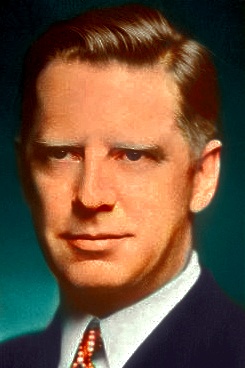The Pittsburgh Press (January 6, 1943)

Pegler: French politics
By Westbrook Pegler
New York –
In the frankest story yet sent from North Africa, Ernie Pyle writes that our people have left in office a lot of small-fry officials who were put in by the Nazis and who therefore must be pro-Nazi and are permitting fascist societies to continue to exist.
He says:
So, what to do?
Well, the French are politically demented for the time being, and serve no great consideration from an army and a people whose mission in Africa is, incidentally, to free them both there and at home, from Nazi Germany. Eventually, if this sort of thing goes on, the Americans and British, in self-defense and for military reasons, will have to abandon the pretense that we are indifferent to their politics and the actions and attitudes of their civil authorities, establish a firm military control and tell them, not ask them, what to do.
French politics always corrupt
One of the many reasons why France fell was that the nation was politically incoherent and corrupt. There were pro-Nazis and communists who worked at cross purposes but, paradoxically, for the common purpose of destroying the republic. Their press was unbelievably traitorous and venal, and most of their politicians were vile including some who have been held up to us by Red or otherwise radical left-wing refugees and some of our homegrown but expatriate propagandists as high-principled fighters for freedom and democracy.
When forced to it on some past occasions, American commanders in foreign lands have had the capacity to take over and establish military government for the security of their troops and the success of their missions. This could, and judging from Pyle’s account, should be done again.
The French people on the continent have nothing to lose by such a move, unless one takes seriously the orations of Henry Wallace, and believes it is the purpose of the American people to liberate the French colonies and feed and protect them perpetually even against France.
But, whatever they think, American troops that far from home should not be needlessly exposed to treachery by Frenchmen on the ground of a temporary waiver of idealism. A resort to firmness would be a cheap price to pay for lives that otherwise might be thrown away.
Americans’ safety is main issue
After all, the French people should not be given too much to say in this affair. In saving a drowning man, the rescuer has the right to bust him on the chin to stop his threshing and grappling and if the French insist on playing their complex politics to the detriment of the American soldier, they should be made harmless as long as the necessity requires. Those who are worth saving will submit and those who favor the Axis will deserve whatever it is found necessary to do to them.
The Americans are not there to rescue France primarily but to drive the Germans out and invade the continent at the conclusion of which enterprise, France, as an incidental result, will be free again to mess up her affairs as of old, and doubtless will.
American softness no surprise
It is a mistake to think that the Germans invented, and are the only people who practice, firmness on civilians and local politicians who get obstreperous when they are in military occupation of a conquered land. Insist if we must that this territory is not conquered and that the Americans are merely passing through but if their lives depend on it, the soldiers should and, it is hoped, will act accordingly.
Pyle seems naïve, however, in wondering at our softness in dealing with elements of doubtful interest, for he should know that we have been doing that at home ever since 1933. Officially, at least, although certainly not popularly, we have been kind to communists and party-liners. Within 12 hours after Pyle’s story appeared there was published a photograph of Mrs. Roosevelt in a jolly group which included Joe Curran, the president of the National Maritime Union.